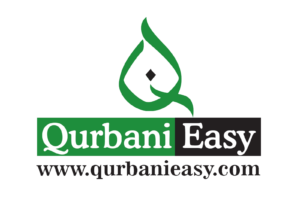

Dhul Hijjah is one of the holiest months in the Islamic calendar, marked by significant religious observances, including Hajj, one of the five pillars of Islam. This month holds great spiritual value as it commemorates the story of Prophet Ibrahim (AS) and his profound act of devotion to Allah (SWT). It is also the time when Muslims around the world celebrate Eid al-Adha, also known as the “Festival of Sacrifice.”
The tradition of Qurbani, or sacrifice, during Eid al-Adha traces its origins to the narrative of Prophet Ibrahim. According to Islamic teachings, Allah (SWT) commanded Ibrahim to sacrifice his beloved son, Ismail (AS), as a test of his faith and obedience. Just as Ibrahim was about to fulfill the command, Allah (SWT) intervened and provided a ram to be sacrificed instead. This act symbolizes Ibrahim’s unwavering faith and submission to Allah’s will.
In remembrance of Ibrahim’s sacrifice, Muslims perform Qurbani by slaughtering an animal—typically a goat, sheep, Buffalo, or camel. The meat from the sacrifice is then distributed among family, friends, and those in need, ensuring that everyone, especially the less fortunate, partakes in the blessings of Eid al-Adha.
Different Islamic schools of thought have varying views on this matter:
For those who follow the prohibition or recommendation, it starts from the 1st of Dhul Hijjah and lasts until the Qurbani sacrifice is performed. Once the sacrifice is completed, individuals can resume cutting their hair and nails.
The practice of refraining from cutting one’s hair and nails is rooted in a deeper spiritual context. It serves as a symbolic act of purity and humility, aligning oneself more closely with the sacrificial act of Qurbani. By abstaining from these grooming practices, Muslims demonstrate their commitment to the rites of Eid al-Adha and their readiness to fulfill Allah’s commands.
The distribution of Qurbani meat follows specific guidelines to ensure that the sacrifice benefits the broader community, especially the underprivileged. Typically, the meat is divided into three parts:
Organizations like Qurbani Easy play a crucial role in this distribution process, ensuring that qurbani meat reaches vulnerable communities around the world. They have established networks and systems to effectively carry out this task, ensuring that the principles of charity and compassion are upheld during this significant period.
Dhul Hijjah is not only significant for the Qurbani sacrifice but also for Hajj, the pilgrimage to Mecca that every Muslim must undertake at least once in their lifetime if they are physically and financially able. Hajj represents the fifth pillar of Islam and is a demonstration of the unity of the Muslim Ummah and their submission to Allah.
During the first ten days of Dhul Hijjah, Muslims engage in various acts of worship, including increased prayers, fasting, and charity. These days are considered some of the most blessed in the Islamic calendar, offering Muslims the opportunity to earn immense spiritual rewards.
Dhul Hijjah is a month rich in spiritual significance, marked by acts of devotion, sacrifice, and community. The rituals performed during this month, particularly Qurbani, reflect deep-seated values of faith, obedience, and charity within Islam. While there are different interpretations regarding the cutting of hair and nails before Qurbani, the essence of the practice lies in its symbolic representation of purity and humility. By adhering to these practices and engaging in charitable acts, Muslims around the world honor the legacy of Prophet Ibrahim (AS) and reaffirm their commitment to the principles of Islam.